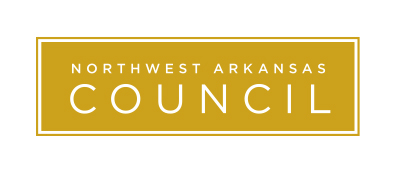FAYETTEVILLE, Ark. – The economy of Northwest Arkansas is on an upward trend with rapid growth in employment and the number of businesses while continuing to lag similar regions in educational attainment and research funding, according to a report prepared for the Northwest Arkansas Council by the Center for Business and Economic Research in the Sam M. Walton College of Business at the University of Arkansas.
The 2012 State of the Northwest Arkansas Region Report compares key economic and social factors in Northwest Arkansas with those in similar regions throughout the United States. It was released Thursday by Kathy Deck, director of the Center for Business and Economic Research, and Mike Harvey, the Northwest Arkansas Council’s chief operating officer.
“The best news from the 2012 State of the Northwest Arkansas Region Report is that employment growth in our region has returned to rates last seen during the pre-recession years,” Deck said. “Northwest Arkansas continues to outpace competitor regions in producing job opportunities, which is the key to continued prosperity. On the flip side of the coin, the region’s relatively low levels of educational attainment and research funding are constraints that we must overcome to enjoy economic gains in the future.”
The report compares the economy in the Northwest Arkansas region – Benton, Madison and Washington counties in Arkansas and McDonald County in Missouri – to that in similar areas around Huntsville, Ala.; Kansas City; Knoxville, Tenn.; Omaha, Neb.; and Tulsa, Okla. It also compares conditions with Arkansas and the United States.
Harvey said regional comparisons are important because companies looking to expand to a region are interested in knowing whether a region can provide the company with the workforce talent it needs to be successful, and the companies are making those same kinds of comparisons. Factors such as educational attainment, unemployment and a region’s future population growth are critical factors in companies’ decisions about where they will expand.
“Today’s companies look at hundreds of criteria when they size up whether they want to expand in a particular region,” Harvey said. “Regions must be strong in dozens and dozens of areas to show companies that they can meet their needs.
“We have work to do, but we’re on a good course. We’re improving in several key areas and regional leaders have established many important programs to move our region in the right direction.”
Key findings from the report indicate:
- During the period from 2000 to 2011, employment in Northwest Arkansas grew at 25.0 percent, a rate that outstripped competitor regions, the state of Arkansas, and the nation as a whole.
- From 2001 to 2011, the number of business establishments in Northwest Arkansas grew 34.8 percent.
- When compared to its competitor regions, Northwest Arkansas had the second lowest unemployment rate in 2011. The unemployment rate dropped 0.3 percent from 2010 to 6.2 percent in 2011.
- From 2001 to 2010, the real gross domestic product (GDP) in the Northwest Arkansas region grew 37.5 percent.
- Research expenditures at the University of Arkansas increased 34.7 percent from 2001 to 2009, but the growth rate was the second slowest among the major research institutions in the competitor regions of Northwest Arkansas.
- Just over 25 percent of adults in Northwest Arkansas have attained a bachelor’s degree or higher, ranking the region second to last among competitor regions but better than the Arkansas average.
The Northwest Arkansas Council is a private, nonprofit organization formed to improve quality of life, education, water quality, transportation and economic opportunity in the region.
The entire report is available at http://cber.uark.edu/2326.asp and at http://www.nwacouncil.org.
Contacts
Kathy Deck, director
Center for Business and Economic Research
479-575-4827,
David Speer, senior director of communications
Sam M. Walton College of Business
479-575-2539,
